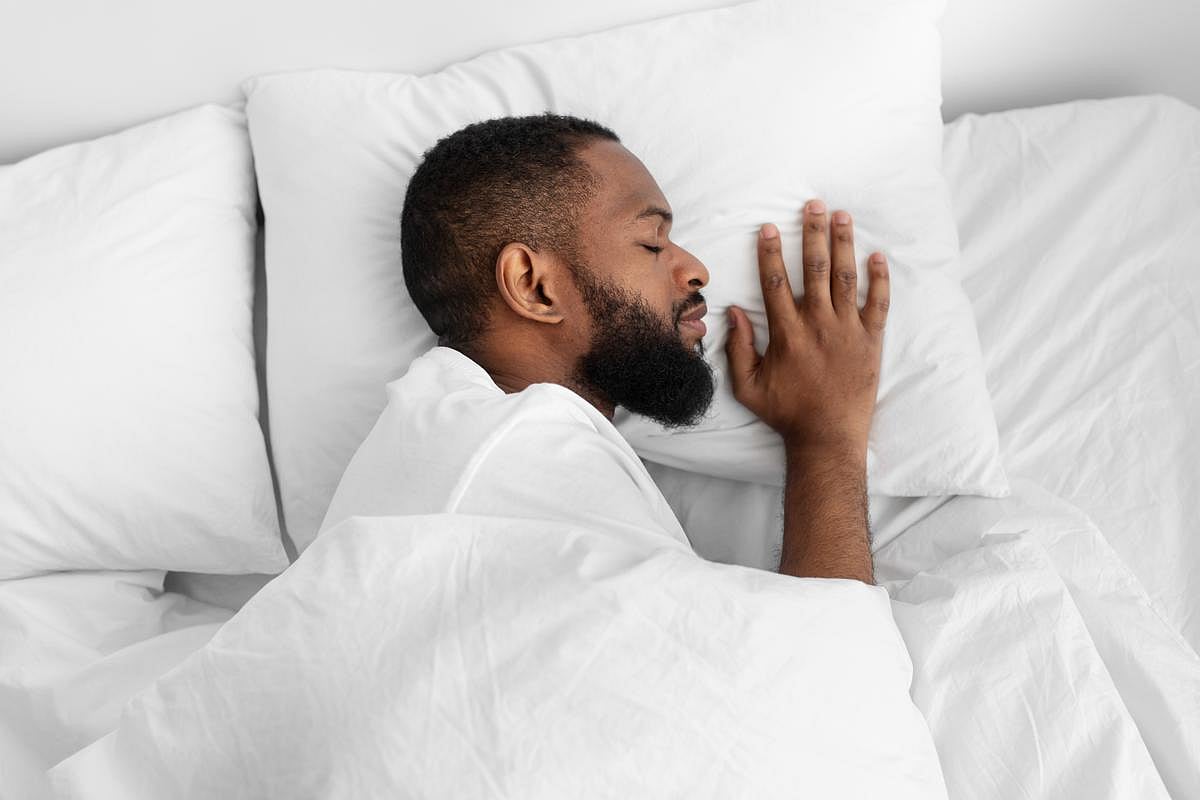Good Sleep, Eating Right Tied To Better Mental Well-Being Among Young Adults
FRIDAY, Aug. 29, 2025 — Good sleep can be key to a young adult’s mental well-being, according to a new study.
Young adults who slept better were more likely to have a healthier mind, according to results from three studies performed in the U.S., U.K. and New Zealand, researchers said.
Eating more fruits and veggies and working out more often also appeared to contribute to a person’s mental well-being, researchers reported Aug. 27 in the journal PLOS One.
In addition, these “big three” lifestyle factors appear to be independent of one another, but also additive, researchers found.
In other words, the more of them a person pursues, the bigger the benefit to their mental well-being.
“This age group faces unique pressures – such as leaving home, financial stress, educational pressures and social stressors – that can lower happiness,” said senior researcher Tamlin Conner, a professor of psychology at the University of Otago in New Zealand.
“Understanding what lifestyle factors support well-being can help young adults not just ‘get by’ but thrive during this critical life stage,” she said in a news release.
For the study, researchers analyzed data from three studies on psychological well-being involving nearly 2,100 adults between 17 and 25 years of age.
Across all three studies, better sleep was most strongly associated with improved mental well-being, results showed. Fruits and vegetable consumption came in second and physical activity third.
“Of these healthy habits, sleep quality stood out as the strongest and most consistent predictor of next-day well-being, but eating fruit and vegetables and being active also helped boost well-being,” Conner said.
In some cases, one of these healthy habits could cover for another, researchers found.
For example, above-average intake of fruits and vegetables could mitigate the effects of a bad night’s sleep, and a good night’s sleep could bolster a young adult against lower fruit and veggie intake.
“Young adults don’t have to reach some objective benchmark of healthiness to see well-being improvement,” lead investigator Jack Cooper, a former University of Otago researcher, said in a news release. “Sleeping a little better, eating a little healthier, or exercising even for 10 minutes longer than you normally do was associated with improvements to how you feel that day.”
However, researchers noted that these were observational studies, and as such can’t prove a direct cause-and-effect link between healthy habits and better well-being.
Sources
- PLOS, news release, Aug. 27, 2025
Disclaimer: Statistical data in medical articles provide general trends and do not pertain to individuals. Individual factors can vary greatly. Always seek personalized medical advice for individual healthcare decisions.
© 2025 HealthDay. All rights reserved.
Read this next
OpenAI Launches Teen-Safe ChatGPT With Parental Controls
THURSDAY, Sept. 18, 2025 — Teenagers chatting with ChatGPT will soon see a very different version of the tool — one built with stricter ways to keep them safe online...
Hair Samples May Help Spot Mental Health Risks in Sick Kids
WEDNESDAY, Sept. 17 2025 — Children with chronic illnesses face extra challenges, and measuring stress through hair samples may help doctors predict which kids are at...
Wegovy May Help Quiet Constant Food Cravings, Study Finds
WEDNESDAY, Sept. 17, 2025 — A popular weight-loss drug may do more than help patients shed pounds. It could also help quiet the nonstop food cravings many people struggle...
More news resources
- FDA Medwatch Drug Alerts
- Daily MedNews
- News for Health Professionals
- New Drug Approvals
- New Drug Applications
- Drug Shortages
- Clinical Trial Results
- Generic Drug Approvals
Subscribe to our newsletter
Whatever your topic of interest, subscribe to our newsletters to get the best of Drugs.com in your inbox.


